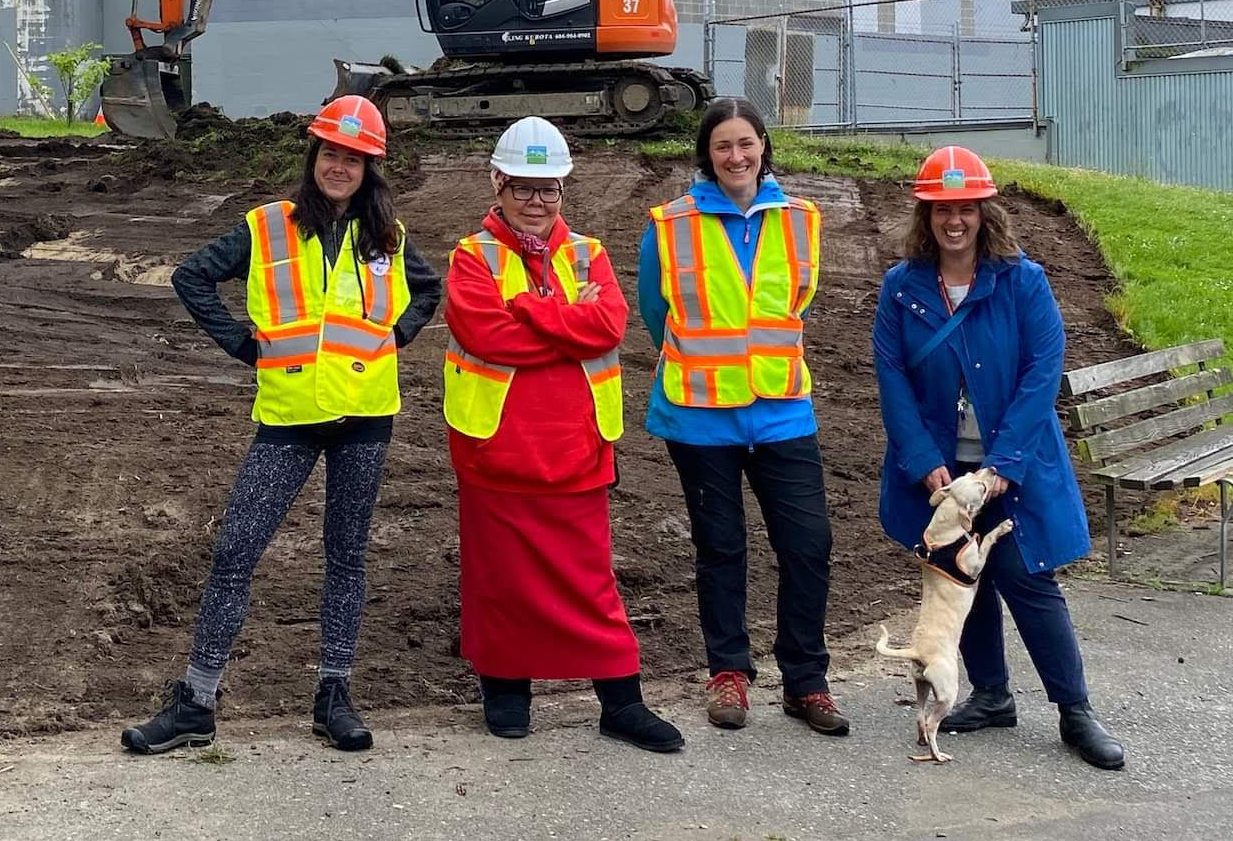Acts of reconciliation go hand-in-hand with acts of decolonization. And for Leona Brown, a Gitxsan and Nisga’a cultural programmer and “colonizer slayer” in Vancouver, a big part of decolonization involves reconnecting Indigenous people to the history, culture and traditions they were forcibly disconnected from. And while Brown has found plenty of supporters, her work has sometimes butted up against resistance to change in settler communities.
As part of Brown’s role with the Vancouver Urban Food Forest Foundation, she has been developing sites for Indigenous food forests in the city’s downtown parks. The project, which is part of Vancouver’s plan to move towards a more sustainable and decolonized food system, was designed with the intention of providing urban Indigenous people a greater connection to traditional foods and plants, including tobacco, huckleberries, and yarrow. “We wanted to showcase Indigenous foods and medicines because a lot of Indigenous people don’t know what that looks like,” says Brown.
Organizers of the Indigenous food forest chose Burrard View Park, a site that was part of a municipal plan to pilot new land stewardship programs. And it was in this context, looking for buy-in from local settlers, that Brown hit resistance to her project.
At a community consultation in March, Brown says that the project garnered considerable support. But some of the homeowners surrounding the park balked at using it for this purpose. The definition of community, for some, excluded her and other Indigenous people. Brown heard, over and over, that the individuals who opposed the food forest had family that had lived around that park for hundreds of years, that the park was like their backyard. At one community meeting, someone stood up and said that he didn’t want the area “invaded by natives.” Other community members were appalled and apologetic, but Brown has been left shaken by the experience. “There was a lot of underlying hate, and it was very shocking,” she says. “It was surprising to me to actually witness and feel something that I thought was done in the 1800s or something.”
Ultimately, Brown and her team prevailed, and the site plan was approved. “I will never abandon anything due to colonized mindsets,” says Brown. Development is expected to begin shortly. Over the summer, a sister garden, this one in Oxford Park, a well-used public space with mature trees, not far from Vancouver’s waterfront, was planted and serves as a model for the vision put forth by Brown and her partners. The park is right next to the Aboriginal Mother Centre Society, which provides housing for Indigenous mothers and their children and serves as one of several community partners that shares the food forest’s educational mandate and harvest.
More on Broadview:
- These Indigenous groups are helping youth aging out of foster care
- Coast Salish sweat-lodge keeper welcomes all to share in healing
- VIDEO: This Cree speaker and healer is passionate about preserving his language
The finished space at Oxford Park includes a circular gathering space dedicated to children who never returned home from residential schools, along with a variety of plants used for food, culture and medicinal purposes separated by colourful markers. “Everybody’s excited about it,” says Brown. “By next year, it’ll be much bigger and people, especially the kids in that neighbourhood will see how magical it’ll be. The whole point of it is again to educate and it’s part of taking our culture back.”
Brown knows that reconciliation is a settler responsibility, but she still grapples with resistance to change from people who want to hold onto their power despite demonstrations of harm. “You realize, okay, this is a colonized mindset and [I’m] not going to be able to convince them,” she says.
Brown recommends that settlers get acquainted with their own history. “A lot of settlers, like the people around Burrard View [Park], think that they’ve been here forever, but once you trace your own history and identify what part of the world you came from, you have a better understanding that Indigenous people have been here since time immemorial,” says Brown. “And then you can understand how everything was taken from us.”
Brown does think that more and more people are trying to be allies. She says that one of the best ways to support Indigenous communities and individuals is to simply listen—to their stories, to their trauma, and to what they need to move forward. “And you know, your heart will tell you where to help us.”
***
Sarah Treleaven is a writer and producer in Halifax.
















I think the use of “colonizer” and “settler” is not the way to get “whities” (that’s what I hear you calling us) on board with your cause.
Remember your people were settlers as well, no doubt moving others out of your way, or at least integrating them.
Reconciliation is not a one-way purpose. It takes more than one side to reconcile. As long as you state “everything” was taken from you, you can ask for “everything” back. (This is a bit like Communism, and it is NOT rooted in Christianity.)